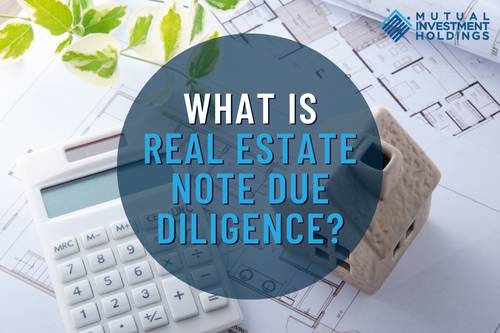
Before an investor pays cash for a real estate note, they perform what is called “due diligence.” This is really just a fancy word for research. You can simplify the process by being prepared for these common note investor requirements.
When an investor makes an offer to purchase a note, mortgage, deed of trust, or real estate contract, it is subject to underwriting and due diligence. This enables the note investor to verify the information provided, analyze the risk, and confirm pricing.
During the due diligence process, investors remove any rose-colored glasses. Each detail is carefully reviewed and verified. If there are flaws, they will be discovered. It creates good will plus saves time, trouble, and money by telling an investor of any known problems upfront.
Standard Real Estate Note Due Diligence
Here are the most common items an investor will require as part of due diligence before closing:
- Review copies of legal documents (Settlement Statement, Note and Mortgage, or Deed of Trust, Contract, etc.)
- Credit report on Payer/Buyer
- Current real estate taxes
- Proof of current hazard and fire insurance
- Payment history & verification of current balance
- Title Insurance Policy or Commitment
- Payoff statements for any property debts still owed by seller
- Current Property Value & Photos (Drive-by Appraisal, BPO, etc.)
- Payer Interview or Estoppel
- Additional items unique to the transaction
The seller usually starts the process by providing copies of the existing legal documents to the investor. The investor will handle the remaining items, requesting additional information or document copies as necessary.
Many investors will cover the cost of due diligence, but policies can vary so be sure to verify. The option or purchase and sale agreement will outline this important information. Be sure to clarify whether the offer is net (after costs) or gross (before costs).
